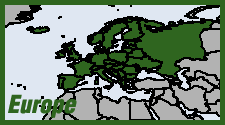 OK, no pun intended, but this one doesn't pass the smell test. Reuters reports all too credulously Nov. 1 that doctors in Albania say hundreds of people have fallen ill from harvesting cannabis. The hospital in the southern city of Gjirokaster said some 700 have sought treatment since June for the effects of planting, harvesting, pressing and packing the crop. "In the last two months about seven to eight people arrive in the emergency ward each day and many more have come earlier with disorders from hashish," Gjirokaster doctor Hysni Lluka told local Top Channel TV. Lluka said women and teenagers, who account for some 40% of those working in the notorious cannabis district of Lazarat, had sought help for vomiting, stomach pain, irregular heart beats and high blood pressure. One patient reportedly arrived "in a critical state." Uninitiated readers are left with the clear impression that harvesters were suffering from severe cannabis intoxication.
OK, no pun intended, but this one doesn't pass the smell test. Reuters reports all too credulously Nov. 1 that doctors in Albania say hundreds of people have fallen ill from harvesting cannabis. The hospital in the southern city of Gjirokaster said some 700 have sought treatment since June for the effects of planting, harvesting, pressing and packing the crop. "In the last two months about seven to eight people arrive in the emergency ward each day and many more have come earlier with disorders from hashish," Gjirokaster doctor Hysni Lluka told local Top Channel TV. Lluka said women and teenagers, who account for some 40% of those working in the notorious cannabis district of Lazarat, had sought help for vomiting, stomach pain, irregular heart beats and high blood pressure. One patient reportedly arrived "in a critical state." Uninitiated readers are left with the clear impression that harvesters were suffering from severe cannabis intoxication.
How much sense does this make? Very little, and it is pretty alarming that Reuters is taking the claims at face value. First, nobody is going to come into contact with any THC at all from "planting" cannabis, and outdoor crops in Europe would only have been getting sticky with THC-laden resin since September—not June. So right away can we dismiss THC as the culprit here. Next, does cannabis cause nausea and vomiting? No, it relieves it. Does it cause high blood pressure? No, it lowers blood pressure. Reuters could have easily gleaned these facts from the "Marijuana Health Mythology" page at the NORML website, or even from the Mayo Clinic!
So what is the true culprit here? Almost certainly, irresponsible use of pesticide by the cannabis growers—not the cannabis itself. Pesticide exposure certainly does cause nasuea and vomiting, and recent research has also linked it to high blood-pressure, Environmental Health News reported earlier this year. Yet the Reuters account doesn't once mention pesticides. It falls to a reader on the news agency's website to state the obvious in a comment: "I suspect that the cannabis fields were sprayed with an herbicide, fungicide or insecticide to combat pests of some sort. The reactions reported are not commonly associated with cannabinoid intoxication, but are associated with some nasty chemicals used to treat crops against pests." Thank you! Not very sharp there, Reuters!
The criminal outfits that control cultivation in Lazarat appear to be exploiting the usual suspects in their pesticide-happy grow ops. Some 2,000 poor migrant workers, including many Roma ("Gypsies"), have set up a camp near the town to seek employment in the cannabis fields, where we are told "producers pay eight euros per 10 kilos of processed drug." We are not told if this refers to harvesting, trimming and/or compacting. And despite Dr. Lluka's use of the term "hashish," Albania doesn't produce any—that was more misinformation.
Aerial surveillance indicates some 60 hectares are producing cannabis in Lazarat with an estimated 300,000 plants this season. Heavily armed growers have repeatedly chased off police sent in to eradicate, but with all the negative publicity, things may be coming to a head. Artan Didi, the newly appointed director of the national police force, pledges that the police will no longer "back down to Lazarat."
We just hope that pesticide-poisoned Roma migrant laborers do not end up bearing the brunt of the crackdown while their exploiters walk free thanks to bribes and patronage. In any event, sloppy reportage is again giving the cannabis plant a bum rap, when the real problem is its illegal status—allowing its control by unscrupulous criminal outfits that expose employees to pesticides.
In another example of how a criminal economy has become hegemonic in post-Communist Albania, BBC News reported last month that Albanian police had broken up an art-trafficking ring that was plundering the country's historic churches and monasteries for medieval paintings, icons and murals to sell abroad on the black market. Prime Minister Edi Rama said he would "redress this lamentable plight of our heritage." Nice sentiment, but unless there is an economic alternative, such outlaw enterprises will flourish in what is Europe's poorest country by a mile. Heaven forbid they should consider legalizing cannabis—daylighting what is already obviously one of the country's top industries, and enforcing some labor safety and environmental standards. Alas, due to prohibitionist pressure from the EU, UN and US, more pesticide poisoninig and gunplay seems a lot more likely...
Cross-post to High Times







Recent comments
4 weeks 4 days ago
4 weeks 4 days ago
7 weeks 5 days ago
8 weeks 4 days ago
12 weeks 5 days ago
16 weeks 3 days ago
20 weeks 3 days ago
21 weeks 1 day ago
31 weeks 1 day ago
35 weeks 2 days ago